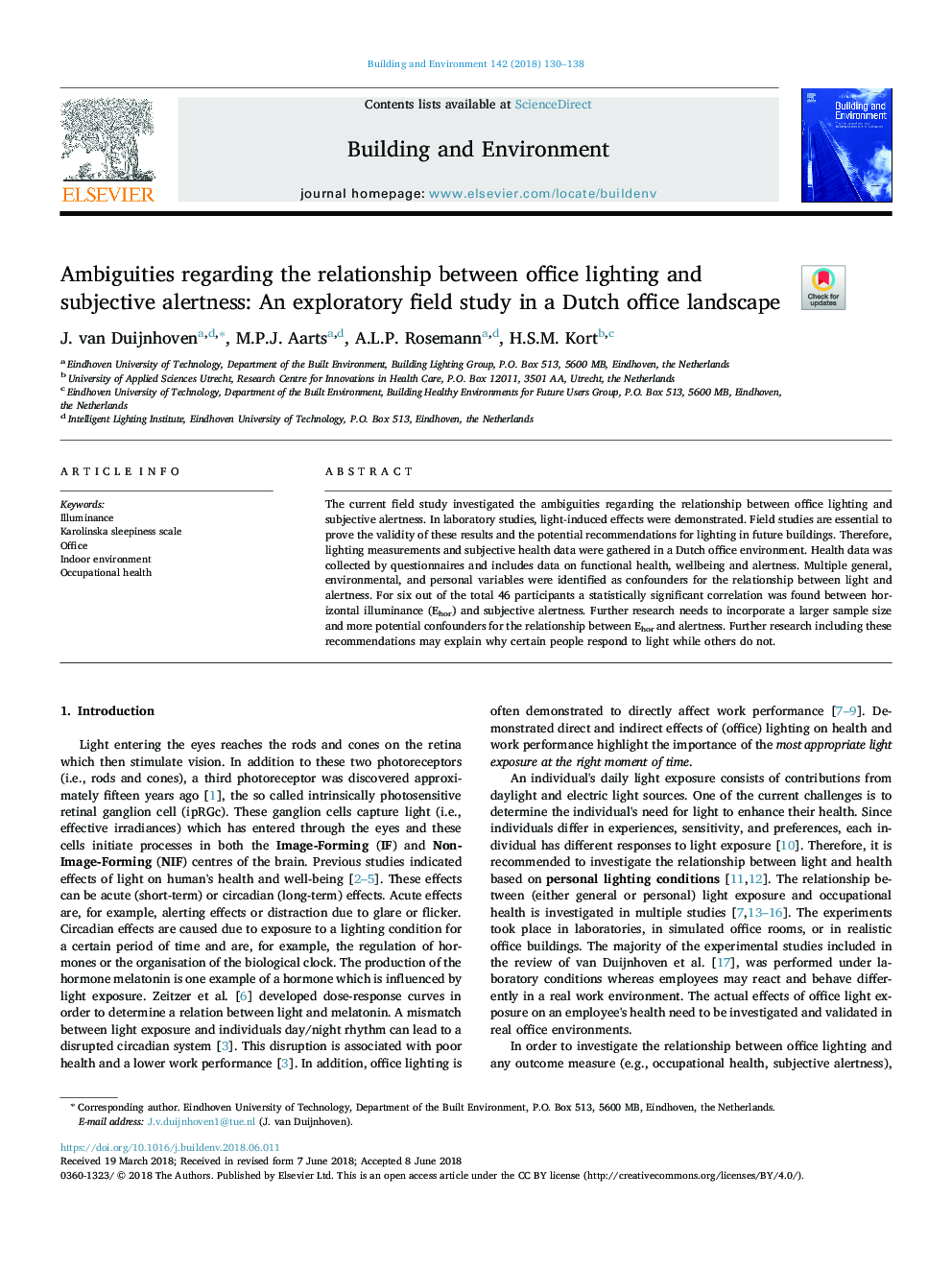| Article ID | Journal | Published Year | Pages | File Type |
|---|---|---|---|---|
| 6696781 | Building and Environment | 2018 | 9 Pages |
Abstract
The current field study investigated the ambiguities regarding the relationship between office lighting and subjective alertness. In laboratory studies, light-induced effects were demonstrated. Field studies are essential to prove the validity of these results and the potential recommendations for lighting in future buildings. Therefore, lighting measurements and subjective health data were gathered in a Dutch office environment. Health data was collected by questionnaires and includes data on functional health, wellbeing and alertness. Multiple general, environmental, and personal variables were identified as confounders for the relationship between light and alertness. For six out of the total 46 participants a statistically significant correlation was found between horizontal illuminance (Ehor) and subjective alertness. Further research needs to incorporate a larger sample size and more potential confounders for the relationship between Ehor and alertness. Further research including these recommendations may explain why certain people respond to light while others do not.
Related Topics
Physical Sciences and Engineering
Energy
Renewable Energy, Sustainability and the Environment
Authors
J. van Duijnhoven, M.P.J. Aarts, A.L.P. Rosemann, H.S.M. Kort,
